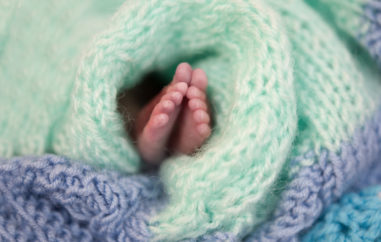1
1 in 5 women will experience a mental health problem during pregnancy and the first year after birth. I see SO many women in my surgery with depression or anxiety. It is unbelievably common but there is still a huge stigma associated with mental health problems. As a society we have yet to become tolerant and empathetic towards women who struggle with mental health problems, and as a result it can be difficult for new and expectant mothers to access the help that they so crucially need.
My advice is not to suffer in silence. Please find a
SelfishMother.com
2
supportive GP or Health Visitor who will be able to give you advice and guidance to help you navigate the difficult times. I personally really enjoy helping women with mental health problems because it is a journey that you can go on together. Quite often the GP is the only person that the patient has confided in and, for me, I think that it is a huge privilege. I get a huge sense of satisfaction and joy when a patient of mine who has been struggling with their mental health starts to recover.
POSTNATAL DEPRESSION:
What are the symptoms of
SelfishMother.com
3
PND?
Symptoms of PND include:
Low mood.
Loss of enjoyment and pleasure.
Anxiety.
Disturbed sleep.
Loss of appetite.
Poor concentration.
Low self-esteem.
Worthlessness and inappropriate feelings of guilt.
Low energy levels.
Loss of libido.
Thoughts of death/suicidal thoughts
What’s the difference between ”baby blues” and depression?
Most new mothers experience an intense period of feeling overwhelmingly emotional and tearful around three to 10 days after giving birth. This is due to a shift in hormone
SelfishMother.com
4
levels, and can feel overwhelming at the time. I was a sobbing, snotty wreck during this period and I couldn’t even listen to the radio without bursting into tears. This is all completely normal, and should settle within a few days as your hormone levels level off.
However, around 10–15% of new mothers develop a much deeper and longer-term depression. Sometimes these women will have had depression in the past, sometimes they won’t. It is thought that only 15% of women with symptoms of PND seek medical advice.
What support can my GP
SelfishMother.com
5
offer me?
Sometimes it can be difficult to untangle whether a new mum is struggling with low mood or anxiety simply due to the accumulation of sleep deprivation, the stress of looking after a new baby, hormones, altered body image, a shift in relationship dynamic, a loss of identity and taking on a new role as a mother. That is why it is so important to see your GP because they can work with you to decide whether you need a little bit of support during the post-natal period, or whether you need more intensive support or medication. Your GP might
SelfishMother.com
6
use a scoring system called the Edinburgh Post Natal Depression Score- this can be useful for both assessing the severity of symptoms, and also as a tool for measuring recovery rates.
Your GP can also offer:
Someone to talk to in confidence
A friendly shoulder to cry on (literally, in some cases!)
Access to mental health services and talking therapies, if required
Medication, if required
Liaison with other services, such as the health visiting team
I think I might have PND- what should I do?
Don’t suffer in silence! Please
SelfishMother.com
7
contact your GP or Health Visitor who will be able to offer you an assessment and further advice.
The more we talk about PND the less the stigma will be. PND is absolutely nothing to be ashamed of. If you are feeling brave enough to share your story in the comments I would love to hear about some of your experiences.
The Maternal Mental Health Awareness Week is being run by the Perinatal Mental Health Partnership. The details of their events this week can be found on their Facebook page: https://m.facebook.com/PerinatalMHPartnershipUK/ and
SelfishMother.com
8
on the Maternal Mental Health website.
www.medicmummy.com
SelfishMother.com
This blog was originally posted on SelfishMother.com - why not sign up & share what's on your mind, too?
Why not write for Selfish Mother, too? You can for free and post immediately.
We regularly share posts on @SelfishMother Instagram and Facebook :)
Claire Ashley - 4 May 17
1 in 5 women will experience a mental health problem during pregnancy and the first year after birth. I see SO many women in my surgery with depression or anxiety. It is unbelievably common but there is still a huge stigma associated with mental health problems. As a society we have yet to become tolerant and empathetic towards women who struggle with mental health problems, and as a result it can be difficult for new and expectant mothers to access the help that they so crucially need.
My advice is not to suffer in silence. Please find a supportive GP or Health Visitor who will be able to give you advice and guidance to help you navigate the difficult times. I personally really enjoy helping women with mental health problems because it is a journey that you can go on together. Quite often the GP is the only person that the patient has confided in and, for me, I think that it is a huge privilege. I get a huge sense of satisfaction and joy when a patient of mine who has been struggling with their mental health starts to recover.
POSTNATAL DEPRESSION:
What are the symptoms of PND?
Symptoms of PND include:
- Low mood.
- Loss of enjoyment and pleasure.
- Anxiety.
- Disturbed sleep.
- Loss of appetite.
- Poor concentration.
- Low self-esteem.
- Worthlessness and inappropriate feelings of guilt.
- Low energy levels.
- Loss of libido.
- Thoughts of death/suicidal thoughts
What’s the difference between “baby blues” and depression?
Most new mothers experience an intense period of feeling overwhelmingly emotional and tearful around three to 10 days after giving birth. This is due to a shift in hormone levels, and can feel overwhelming at the time. I was a sobbing, snotty wreck during this period and I couldn’t even listen to the radio without bursting into tears. This is all completely normal, and should settle within a few days as your hormone levels level off.
However, around 10–15% of new mothers develop a much deeper and longer-term depression. Sometimes these women will have had depression in the past, sometimes they won’t. It is thought that only 15% of women with symptoms of PND seek medical advice.
What support can my GP offer me?
Sometimes it can be difficult to untangle whether a new mum is struggling with low mood or anxiety simply due to the accumulation of sleep deprivation, the stress of looking after a new baby, hormones, altered body image, a shift in relationship dynamic, a loss of identity and taking on a new role as a mother. That is why it is so important to see your GP because they can work with you to decide whether you need a little bit of support during the post-natal period, or whether you need more intensive support or medication. Your GP might use a scoring system called the Edinburgh Post Natal Depression Score- this can be useful for both assessing the severity of symptoms, and also as a tool for measuring recovery rates.
Your GP can also offer:
- Someone to talk to in confidence
- A friendly shoulder to cry on (literally, in some cases!)
- Access to mental health services and talking therapies, if required
- Medication, if required
- Liaison with other services, such as the health visiting team
I think I might have PND- what should I do?
Don’t suffer in silence! Please contact your GP or Health Visitor who will be able to offer you an assessment and further advice.
The more we talk about PND the less the stigma will be. PND is absolutely nothing to be ashamed of. If you are feeling brave enough to share your story in the comments I would love to hear about some of your experiences.
The Maternal Mental Health Awareness Week is being run by the Perinatal Mental Health Partnership. The details of their events this week can be found on their Facebook page: https://m.facebook.com/PerinatalMHPartnershipUK/ and on the Maternal Mental Health website.
www.medicmummy.com
Did you enjoy this post? If so please support the writer: like, share and comment!
Why not , too? You can share posts & events immediately. It's free!
I am a GP registrar currently working in the South West, and a mother of 2 young children.
LIST




















